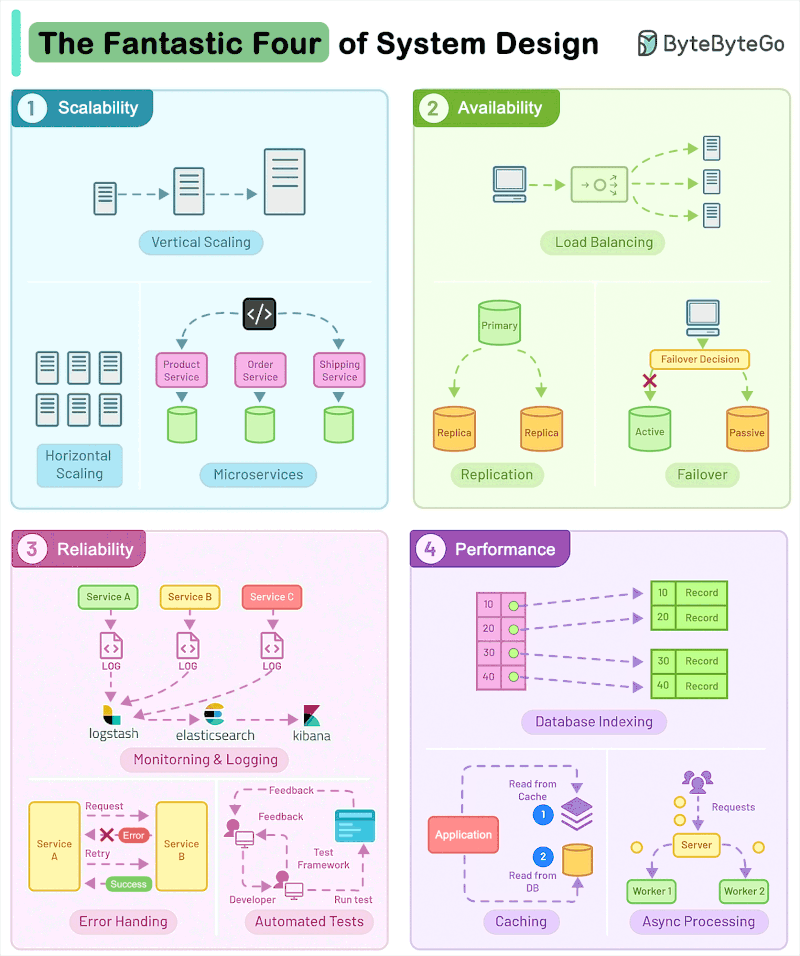
Scalability, Availability, Reliability, and Performance (often abbreviated as SARP), are fundamental characteristics that determine the overall health and effectiveness of software for businesses. Let’s break down how each pillar benefits businesses:
Scalability: Imagine your business grows rapidly, and your software struggles to handle the increased user base or data. Scalability ensures your software can adapt to these changes. It allows you to easily add more resources (servers, storage) to handle the growing demands, preventing slowdowns or crashes. This keeps your business running smoothly and accommodates future expansion.
Availability: This refers to how consistently users can access your software. High availability ensures minimal downtime, meaning your software is almost always accessible to users. This is crucial for businesses that rely on constant operation, like e-commerce stores or online banking platforms. Downtime translates to lost revenue and frustrated customers.
Reliability: Reliability focuses on how consistently your software performs as expected. Reliable software produces accurate results and behaves predictably, minimizing errors and crashes. This builds trust with users and avoids disruptions to workflows. Imagine a business critical application that calculates payroll – reliability ensures those calculations are accurate and on time.
Performance: Performance refers to how fast and efficiently your software executes tasks. High-performance software delivers quick response times and smooth operation. This translates to a better user experience, increased productivity, and cost savings. For instance, faster loading times on an e-commerce website can lead to more conversions and sales.
In essence, SARP helps businesses achieve:
Reduced costs: Scalability avoids expensive rewrites when growth demands change. High availability minimizes revenue loss from downtime. Reliability reduces the need for constant troubleshooting and maintenance. Performance improvements can lead to efficiency gains.
Enhanced customer satisfaction: Availability ensures users can access services whenever needed. Reliability builds trust by delivering consistent results. Performance creates a smooth and efficient user experience.
Competitive advantage: By prioritizing SARP, businesses can offer a reliable and high-performing service, giving them an edge over competitors with less robust software.
By focusing on these four pillars, businesses can build secure, dependable, and efficient software applications that support their growth and success.

Image credits: ByteByteGo

